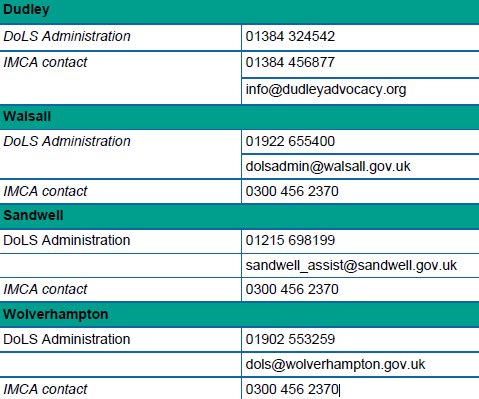What is mental capacity?
Having mental capacity means that a person is able to make their own decisions. The Mental Capacity Act says that a person LACKS capacity to make a particular decision if they cannot do one or more of the following four things:
- Understand information given to them,
- retain that information long enough to be able to make the decision,
- weigh up the information available to make the decision,
- or, communicate their decision - by talking or using sign language or even simple muscle movements.
Mental Capacity Act (MCA)
The law says that we must help people to make their own decisions when possible. When a person can’t make their own decisions other people will need to decide on their behalf.
The Mental Capacity Act provides a framework for how we make decisions for people who may lack capacity to make some decisions for themselves. The Act states that when we make a decision on behalf of someone, it must be in their best interests.
It makes clear who can make decisions, in which situations they can do this, and how they should go about it, e.g. if it’s a medical decision the decision maker will be the doctor, if it’s a decision relating to nursing care, the nurse will be the decision maker.
The 5 statutory principles of the Act
We must always be able to show that we have adhered to these principles:
1. Every adult has the right to make their own decisions and must be assumed to have the capacity to make them unless it is proved otherwise.
2. A person must be given all possible help before anyone treats them as not being able to make their own decisions.
3. Just because an individual makes what might be seen as an unwise decision, they should not be treated as lacking capacity to make that decision.
4. Anything done, or any decision made on behalf of a person who lacks capacity must be done in their best interests.
5. Before the act is done, or the decision is made, regard must be had to whether the purpose for which it is needed can be as effectively achieved in a way that is less restrictive of the person’s rights and freedom of action.
Planning ahead
The Act allows people to plan ahead for a time when they may lack capacity. It covers major decisions about property, healthcare treat-ment such as where a person lives, everyday decisions about per-sonal care and decisions about treatment.
The Act enables adults over 18 years of age to appoint Lasting Power of Attorneys to make health and welfare and/or property and affairs decisions for them should they lack the capacity to make these decisions for themselves.
The Act also introduces Advance Decisions to Refuse Treatment (ADRTs) which individuals can make when they have capacity.
An ADRT informs health care professionals of treatments the person wishes to refuse should they lack capacity to make this decision for themselves.
How is capacity assessed?
The Act states that capacity must be assessed for each decision that needs to be made, at the time it needs to be made – so is often referred to as being decision specific and time specific.
The assessment must be made by the person who is directly involved with the decision that needs to be made, so if it is a medical decision then the assessment will be made by the doctor, but if it is a decision relating to care, the assessment will be made by a nurse/carer.
If the person is deemed to lack capacity then the assessor will become the decision maker and must make a best interests decision on behalf of the person.
Assessing the capacity in practice—referred to as the Two Stage Test
Firstly, always bear in mind the statutory principles. Then ask;
1. Is there an impairment or a disturbance of the person's mind or brain?
2. If so, is the impairment or disturbance sufficient that the person lacks capacity to make that particular decision at that time?
If the answer is yes to either of these questions you must then
consider the following factors:
A) Is the person able to understand the information related to the decision to be made?
B) Is the person able to retain the information related to the decision to be made?
C) Is the person able to use or weigh up the information while considering the decision?
The person must be able to do all three to make a decision AND
D) They must be able to communicate their decision– this could include alternative forms of communication when verbal communication is not possible.
If the answer is yes to A,B,C and D then the person is deemed to have capacity for that decision at that time.
If the answer is no to any one of these questions than the person lacks capacity for that decision at that time.
How is a best interests decision made?
The decision maker must encourage the participation of the person who lacks capacity and consult others to explore their past and present wishes before coming to a ‘best interests’ decision.
The Act clearly states that family and friends (including next of kin) do not have the automatic legal authority to make health or social care decisions unless stated within a Lasting Power of Attorney for personal welfare matters.
The Mental Capacity Act Code of Practice (Chapter 5) sets out a checklist which decision makers must follow when they are making a best interest decision.
Deprivation of Liberty Safeguards (DoLS)
What is a deprivation of liberty?
Sometimes, caring for and treating people may mean restricting their freedom. If the person lacks capacity to consent to a care plan which imposes restrictions on them, they may be being deprived of their liberty.
The Deprivation of Liberty Safeguards (DoLS) are an amendment to the Mental Capacity Act 2005 and ensure that professionals apply checks and balances when a service user (who lacks capacity) is deprived of their liberty.
There are many people in different settings receiving care subject to restrictions which amount to their being deprived of their liberty.
Settings include hospitals, care homes, supported living or care at home. (The last two settings are referred to as Community DoLS).
A judgement by the Supreme Court (known as Cheshire West 2014) emphasised the importance of identifying those who are deprived of their liberty and this judgement gave us the ‘acid test’ for DoLS.
The ‘acid test’
The Supreme Court judgement ruled that an ‘acid test’ could be applied to determine whether there was a deprivation of liberty.
The acid test sets out two questions that professionals should consider when determining whether an adult who has been assessed as lacking capacity to consent to their care arrangements is being deprived of their liberty or not:
- Is the person subject to continuous supervision and control? And;
- Is the person free to leave?
For advice on DoLS in a hospital/care home setting staff should contact their local DoLS office.
For advice on DoLs in someone’s home/supported living (Community DoLS), staff must contact adult services in their local authority. The legal framework for DoLS has been reviewed and will be replaced by the Liberty Protection Safeguards, please speak to the DoLs leads if you have any further questions.
Independent Mental Capacity Act Advocates (IMCA)
An Independent Mental Capacity Advocate will be involved where an individual does not have anyone to advocate in their best interest, to ensure impartiality.

For more information
If you need further guidance please contact one of the following:
Mental Health Act Manager: 01384 324 543
Vulnerable Adults and Children Lead: 01384 324592

